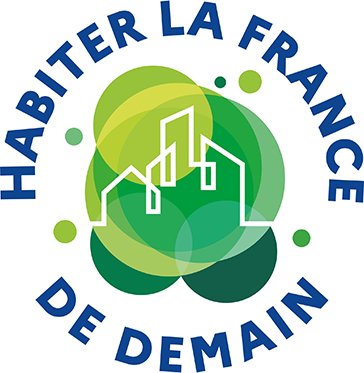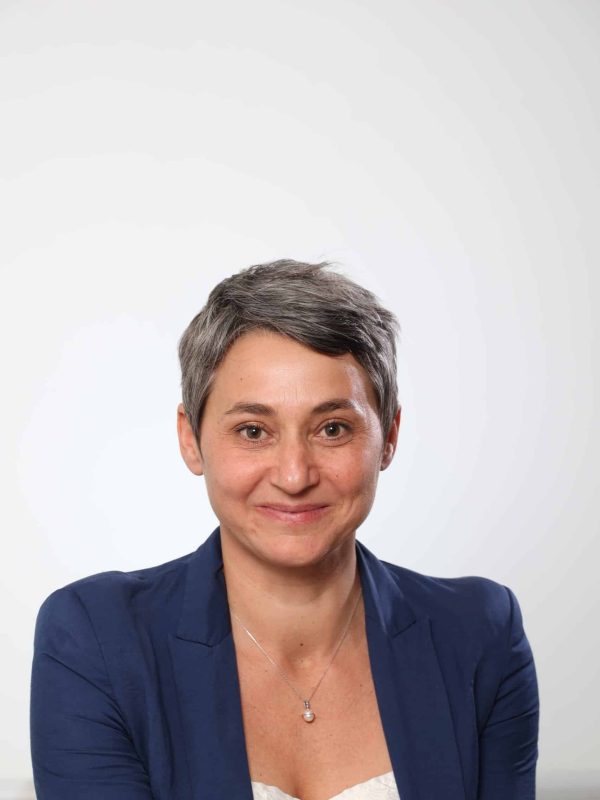Cosmopole project
A project proposed by Ministry of Ecological Transition Ecocité program

Contributor
Sophie.robin@developpement.gouv.fr
Description
In the face of the land inflation that is affecting the heart of the Lille metropolis, the Solidarity land organization / Real Solidarity Lease (OFS/BRS in French) scheme makes it possible to develop a sustainable supply of affordable housing for social homeownership (with a framework of resale conditions and capital gains) for households that would not be able to afford it on the open market in a central district.
These 15 Real Solidarity Lease (RSL) dwellings are part of a mixed program on the site of the former Faculty of Medicine and Pharmacy, the 19th-century facades of which have been preserved.
The SLO (Solidarity Landholding Organisation)/RSL scheme is based on the principle of separating the land from the buildings. Within the framework of this operation, the OFSML is the owner of the land on which the 15 RSL housing units were built by FINAPAR/VILOGIA within the framework of an RSL operator (project management of the housing units).
- Rénovation / Réhabilitation
- Quality of housing
- Social solidarity economy
- Heritage
- Strengthening of social links and of solidarity
- District
Factsheet
- Metropolis
Distinction
Media
Project evaluation*
based on contributor declaration
Criterion 1: SUFFICIENCY
The “Cosmopole” project was carried out on the site of the former University of Pharmacy and Medicine. Built in 1892, the neoclassical style facades, dating from the 19th century, have been preserved and an important work on the masonry, in particular to restore the lightly colored ribbon joints as well as the original mosaics, has been carried out.
The entire project, located in a partly student neighborhood, was carried out in order to maintain the traffic flow and noise impact for local residents.
NC
NC
NC
Criterion 2: INCLUSION
NC
These 15 RSL dwellings are part of a mixed program on the site of the former University of Medicine and Pharmacy, whose 19th-century facades have been preserved.
Cosmopole is now a 20,000m² landscaped garden that includes a 127-room hotel, an art gallery, the British cultural center, 214 parking spaces, 210 homes, including 83 free housing, social housing and 15 Real Solidarity Lease (RSL) dwellings.
The 15 social homeownership dwellings in RSL are intended for households with incomes below the social rental-accession loan (PSLA in french). Their price per m² is limited to €2,100/m² (compared with €4,500 to €4,700/m² in the open market) in order to encourage the return of a social mix in the central districts of Lille.
Under the SLO/RSL scheme, the land is owned by an SLO (the OFSML in French, in this case), while the households taking out the SLO/RSL acquire rights in rem for a length of 18 to 99 years.
According to the initial feedback from households, and although they do not own the land for which they pay a fee for its occupation, the scheme is rather well received with regard to the location of the housing (located in the center of Lille) and their typology (2, 3, 4 and 5 room-apartments). Without the housing company’s ownership of the land, these households would only have been able to access homeownership in sectors far from the city center and in sectors with poor public transport links.
Criterion 3: RESILIENCE
NC
NC
Criterion 4: CREATIVITY
NC
At the beginning of 2021, the OFSML launched a study to define the possibilities and modalities for the participation of inhabitants in the OFSML (cf. building on the Command-line tool model with a view to involving households in the SLO)
Criterion 5: POTENTIAL OF REPLICABILITY
The system is currently being deployed throughout France (metropolitan France and the overseas departments). To date, 54 SLO have been approved and nearly one hundred RSL housing units delivered (Lille, Espelette, Kremlin-Bicêtre, etc.). This dynamic is intended to grow and, by 2024, it is projected that, based on the programs identified with the SLOs approved by the Regional Directorate for the Environment, Planning and Housing (the DREAL in French), approximately 20,000 housing units will be in SLO.












